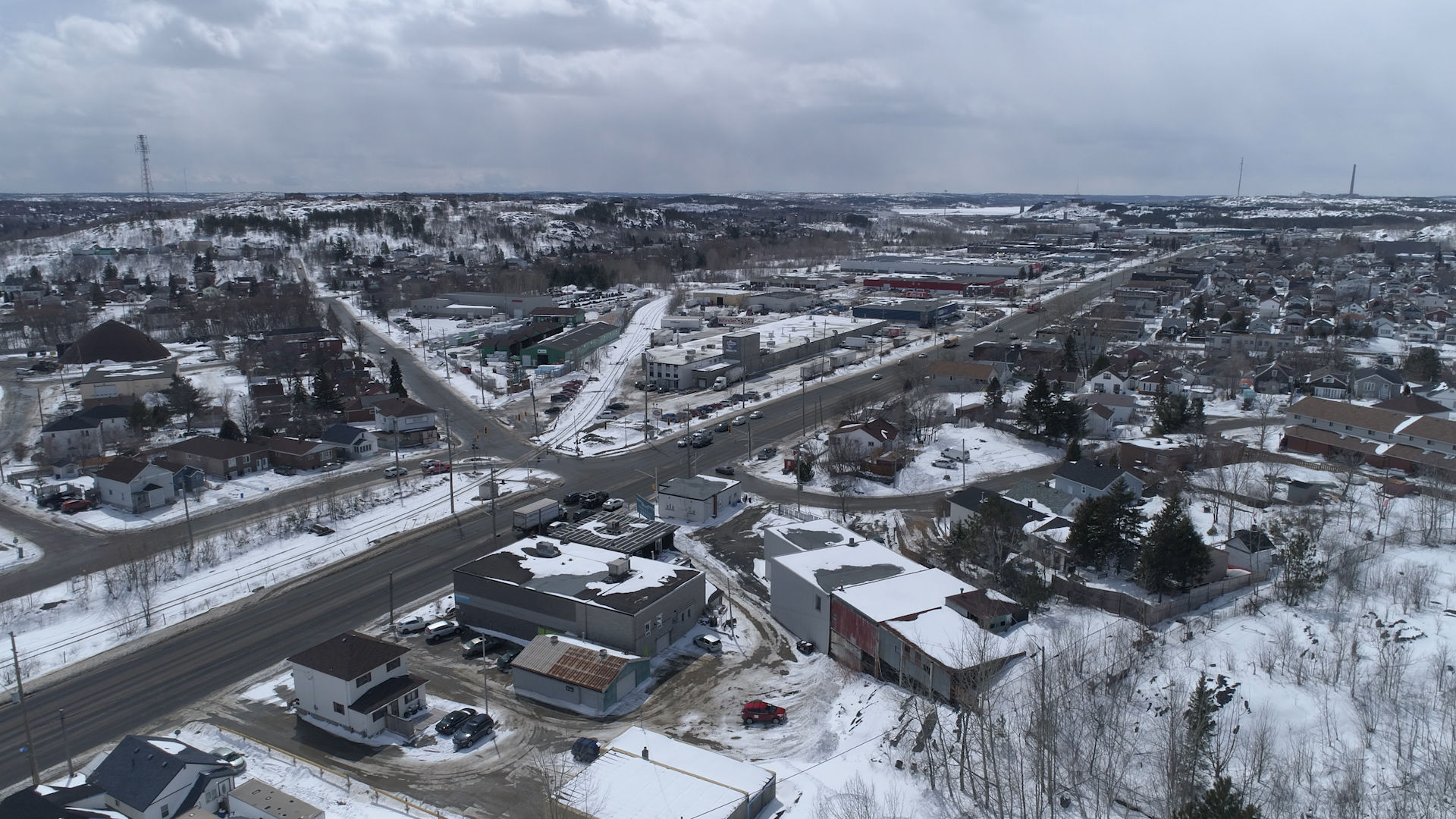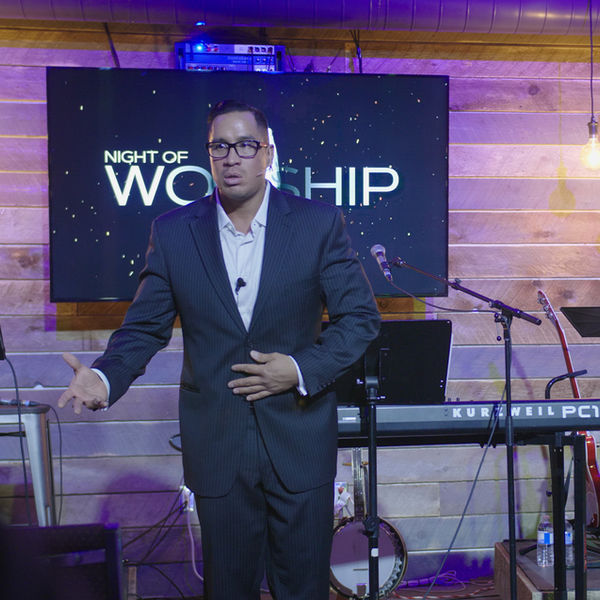

PRISON
PUMP
World Broadcast Premier
September 28, 2018
CBC DOCS POV

Synopsis
A life of crime can exert a powerful hold on someone who is trying to leave that life behind. Jose Alejandro Vivar knows this only too well—and has the scars to prove it.
Arrested as a teenage drug kingpin, Vivar earned parole after serving several years and began a new life as a fitness entrepreneur. But his ambitious plans were almost erased when a hitman fired five bullets into him during an early-morning exercise class he was leading in a downtown park.
In Prison Pump, we witness Vivar’s determination not only to survive this setback but to thrive and finally become a role model to the sons he thought he’d never see again.
Prison Pump tracks the development of 25/7—the fitness program Vivar developed in prison—which is now saving lives by promoting healthy living and helping ex-convicts struggling to re-enter society.
Vivar entered the gangster life as a young teen and quickly rose through the ranks. In 2002, he was charged with the murder of a rival gang’s leader, and was acquitted. A 2007 Toronto police sting operation targeting Vivar caught him in possession of weapons, ammunition, large quantities of illegal drugs, and $130,000 cash.
Prison Pump shows Vivar’s metamorphosis from an out-of-shape convict to a hard-body guru and aspiring motivational speaker. We get an intimate glimpse into his once-secret life in Northern Ontario, where he spins off the 25/7 program to local success—but always looking over his shoulder.

Why Kids Join Gangs

Why Kids Join Gangs

The other side of lawyer John Struthers

Jose on Writing

Lawyer John Struthers on Drug Legalization

ED BARREVELD
producer

SHASHA NAKHAI
associate producer
GARY LANG
writer/director

ROB RUZIC
editor


KATIE MURRAY
production + post production coordinator

DANIEL PELLERIN
sound design and re-recording / mix supervisor
KEN MYHR
original music

ERIN CHISHOLM
archive research

CREDITS
writer/director
Gary Lang
producer
Ed Barreveld
associate producer
Shasha Nakhai
editor
Rob Ruzic
director of photography
Ryan Mariotti
Patrick McGowan
Derek Rogers
Andrew Sheppard
Rich Williamson
original music
Ken Myhr
production coordinator
Katie Murray
sound design and re-recording / mix supervisor
Daniel Pellerin
online facility
Urban Post
colourist & packaging editor
Andrew Mandziuk
online conform
Rouben Boudagian
assistant editor
Caitlin Durlak
post production supervisor
Shasha Nakhai
post production coordinator
Katie Murray
researcher
Vanessa Hill
visual research
Erin Chisholm
drone photography
Ryan Mariotti
production assistant
Derek Daniher
dialogue and effects editor
Elma Bello
re-recording mixer
Bret Killoran
conform editor
Jeremy Fong
pre-mix studio
Studio Soleil
mixing studio
Redlab / Premium Sound
sketch artist
Oliver Heinrich
Ayan Sengupta
still photography
Claire Harvie
archival footage
25/7 Fitness
Bell Media Inc.
CBC Archive Sales
Clara and Jose Vivar
Footage courtesy of Rogers Media Inc.
Jose Alejandro Vivar
KAHR Firearms Group
Marianne Boucher
MDF Productions
The Globe and Mail
Toastmasters International
publicity
Ingrid Hamilton
production bookkeeper
Michele Williams
production auditor
Jimmy Ye
legal
Stohn Hay Cafazzo Dembroski Richmond LLP
production insurance
Eve Needra/Steve Beatty
special thanks
Laura Beeston
thanks
Hazel Barreveld
Calvin Barry
Keira Ferguson
Martin Franso
Suzanne Frey
Justine Fung
Peter Gentile
Monica Gupta
Ceejai Julian
Judy Kristen
Lulu
Anne Martin
Lukas Matiuszka
Madison Mulvaney
Jennifer Punter
Doug Quan
Amanda Robichaud
Miguel Salguero
Courtney Sallows
John Struthers
Clara Vivar
Jose Vivar Sr.
All Nations Church
Dave & Buster’s
Donovan’s Bargain Corner
Frübar Juicery
The Man Cave Barber Shop
Toastmasters International
Vancouver Community Health Services – Intensive Case Management Team
For the CBC
general manager, programming
Sally Catto
executive director, unscripted content
Jennifer Dettman
senior director, documentary
Sandra Kleinfeld
director of production, unscripted content
Alexandra Lane
executive in charge of production
Charlotte Engel
Produced by 2271120 Ontario Inc. for Storyline Entertainment
ISAN 0000-0004-F775-0000-H-0000-0001-L


DIRECTOR’S STATEMENT
Gary Lang, Summer 2018
I have written, directed, or produced dozens of true crime documentaries for over fifteen years. Countless prison visits, meetings with lawyers, interviews with detectives, and coffee with families have taught me just one thing: behind every one of these gripping narratives, there is so much suffering, so many victims. The crime genre has never been more popular, with all its delicious twists and turns – and yet, at the core, these stories are about the tremendous pain and loss that changes lives forever. Jose Vivar is a man who is draped in that deep suffering. What makes his story different is that he is determined to escape his anguish and find redemption.
Before I met Jose Vivar, he did not have my sympathy. He was a gang leader, a drug lord, a man whose life had been defined by violence. He dealt cocaine to kids in my neighborhood. He carried a gun from the age of thirteen. Jose knows he cannot change his past. But he’s also haunted by the loss he’s suffered as a direct result of his choice to become a ruthless gang leader. His eight years in prison meant that missed seeing his children grow up. He not only destroyed his parents’ trust, he put their lives in danger from the men who want him dead. And the friends he honoured above all others ratted him out and turned police informants. He’s now thirty six and desperately trying to turn his life around but he knows the path to redemption is not easy.
Jose Vivar’s story is not just one of redemption. It is also a window into a world right in front of us that we cannot see – the world of organized crime in Canada. My sons and I play in Christie Pits park. We toboggan there in winter and play ball there in summer. They have a word for the area: “sketchy”. To them, the word means that something doesn’t feel quite right. Sure, Jose Vivar went to jail and the LA Boys disbanded, but the gangland drug business continues to thrive in the area – indeed, throughout Toronto. Access to that obscure and treacherous world drove my desire to make this documentary. Jose was a highly-placed figure in the world of organized crime, and I was fascinated by what secrets might reveal from his unique perspective, and in his highly articulate, fearless voice.
This film intersects with Jose’s life at a critical moment. He is determined to safely return to the world as a free man and turn Prison Pump into a national business. But by doing so, he puts himself and those he loves at risk.
PRODUCER NOTES
Every city has to deal with crime but I remember thinking “this doesn’t happen in our city” when I read Laura Beeston’s July 2016 article in the Toronto Star about an assassin who pumped 5 bullets in Jose Vivar as he was leading a busy exercise class in downtown Toronto’s Christie Pits Park on an early Saturday morning. We frequently hear of shootings in the city, especially this year, but this was a family affair in a busy community park. Broad day light, in the heart of the city, kids, moms, dads. I could have been there with my family.
The story stuck with me and when I read an update a few months later I called Ms. Beeston. After our chat I asked if she could put me in touch with Jose and 10 minutes later he was on the phone. Director Gary Lang had worked on a number of crime related documentaries and I knew that he would be able to establish a rapport with Jose.
We agreed that we, Gary and I, would meet Jose at his then undisclosed location. As luck would have it, DOP Andrew Sheppard was in the same town and Jose’s parents happened to be visiting him. Over two days we interviewed Jose and his parents and cut a trailer which we sent to Charlotte Engel at the CBC. Charlotte supported further development of the film and subsequently greenlit what is now Prison Pump.
We had certain ambitions to tell the story but had to simplify things after Toronto Police Services and Corrections Services Canada declined to participate in the film. There was a lot going on in Jose’s life anyway. He was building up his strength after the assassination attempt, start a new life in a new city, trying to set up a gym in Toronto – with dreams of expansion - reconnect with his parents and two young sons, test new relationships, and prepare to become a motivational speaker.
At first I was apprehensive working with Jose. He had been a very bad dude but as I got to know him, and like him, I really felt for him. There were ripple effects; there was a permanent strain on his relationship with his parents. His relationship with the mother of his children was fractured. He saw his boys grow up through photographs, his once luxurious life style was now reduced to the basics. I could see the regret and his struggle trying to catch up on the 8 ½ years of his life that was lost. But I was impressed by his drive to make things right again, his vision to bring fitness to the people and help young people avoid the path he took. Jose still has a long way to go but as lawyer John Struthers says in the film “Jose was a natural leader”. He is now applying those skills to build his new life.
Ed Barreveld
August 2018









